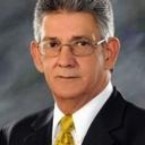
Budget expert José Rijo Presbot has been sharing the results of his analysis of budgetary implementation by the Medina administration in his participation in radio and TV talk shows. During an interview with Huchi Lora and Javier Cabreja on El Dia TV show on Telesistema, Rijo remarked on the significant increase in spending of the central government when comparing the months of August 2019 to September 2019.
The steep rise in government spending has coincided with the government endorsement of at the time Minister of Public Works Gonzalo Castillo for presidential pre-candidate for the PLD. Castillo ran against former President Leonel Fernández. The Medina government has announced its pride in creating a winning candidate in less than two months’ time.
Comparing August to September 2019, Rijo Presbot explained that central government spending was up more than RD$1.3 billion. This includes an increase of RD$12 million for travel allowances; gasoline spending was up RD$27 million; minor public works allotments increased RD$160 million; fixed government jobs were up RD$187 million; scholarships and study programs were up RD$227 million; advertising and propaganda was up RD$236 million; and there was an increase of RD$448 million for purchase of vehicles.
At the Ministry of Public Works alone, advertising was up RD$3 million, fixed wages RD$4 million more, minor public works construction RD$8 million, food and beverages was up RD$9.5 million, and purchase of vehicles was up RD$27 million.
The Medina administration had announced that most of the cabinet officers would campaign for Gonzalo Castillo. The Minister of Public Administration argued the officers would campaign after they got off at work at 4pm.
During the interview, journalist Huchi Lora called the overspending electoral fraud. Rijo said that it is mostly the result of lack of the Central Electoral Board (JCE) taking responsible actions to curtail the practice. He said the JCE is not fulfilling its role to monitor electoral spending for transparency and equity.
Rijo said that the increase in government spending over 2019 has lead to the Medina government requesting that Congress adjust the budget with a complementary budget with increased government debt. Rijo said this budget deficit scheme began in 2008 to generate funds for the reelection of former President Leonel Fernandez. Rijo explained that the government practice is to overestimate government revenues and underestimate government expenses when presenting the budget and later compensate these by taking on new debt in a complementary budget to legalize the excessive spending during the year. The practice has been possible given that the ruling PLD has been majority in both houses in Congress.
Follow the story in Spanish:
YouTube
30 October 2019

